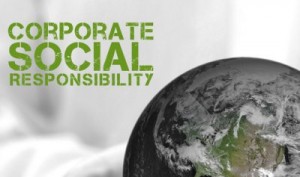 If you’re ever looking at annual corporate reports or high-ranking executive surveys, a few recurring themes tend to appear. While the global economy and fast-changing technologies are usually mentioned, another category is starting to stand out – corporate social responsibility.
If you’re ever looking at annual corporate reports or high-ranking executive surveys, a few recurring themes tend to appear. While the global economy and fast-changing technologies are usually mentioned, another category is starting to stand out – corporate social responsibility.
Back in October, John Krafcik, then-president and CEO of Hyundai Motor America, spoke clearly about where most automakers and other Top 500 companies are headed. “We’re committed to being a leader in CSR (corporate social responsibility), and to being a leader for the environment. As an automaker, Hyundai has a strong position in CO2-reduction and personal safety systems in all the global markets in which we compete. Yet we see ourselves as more than a carmaker. We are committed to finding sustainable personal mobility solutions that ensure this great privilege is maintained for future generations. We’re absolutely committed to our philanthropic causes and corporate social responsibility.”
Krafcik also shared details on the Hyundai Sonata Hybrid, the Hyundai Tucson Fuel Cell, and charitable organizations that the company is making donations to. If you read through annual reports issued by other automakers – and by tier-one suppliers – you’ll see similar messages. Many corporate executives say it’s understood these days that they be responsible citizens in their local and global communities (or at least that they’re being perceived this way). OEMs are also expecting these goals to be fulfilled by their supply chain partners, a good example being Johnson Controls just announcing recognition received from its Volvo Cars client.
Corporate ethics, community service, and sustainability are the themes typically being articulated and committed to in corporate mission statements. So what does that mean for alternative fuel vehicles and clean transportation? There are a few opportunities…….
- Fleets and executive management are being told by their board of directors to take green issues more seriously – that comes through energy efficiency, vehicle emissions, and corporate sustainability campaigns.
- Supply-chain relationships are being affected much more by expectations in carbon/GHG emissions reduction, using recyclable materials, and staying compliant to regulatory structures. Those relationships can take different forms – automakers, suppliers, and dealer networks; and transportation companies and their clients’ corporate policies, are two visible trends these days.
- Sustainability tends to come from a sense of corporate responsibility and leaving the planet to future generations. As the giant GenY demographic youth group comes of age – and makes for an even larger number of people than Baby Boomers – that’s a message that’s given a lot more weight than 10 years ago.
- Consumer surveys are showing a lot more interest in environmental responsibility in what they’re willing to purchase. This market trend has expanded beyond the niches that used to define it. Not long ago, upper income bi-coastal urban residents were buying hybrids and electric vehicles; but that’s started to change in the past couple of years.
As you’re putting together marketing and education campaigns for this year, these are important realities to keep in mind. When you view advertising for green vehicles, you’ll nearly always find messages related to reduced carbon emissions, clean air, and freedom from foreign oil imports. That fits well into corporate social responsibility themes.



